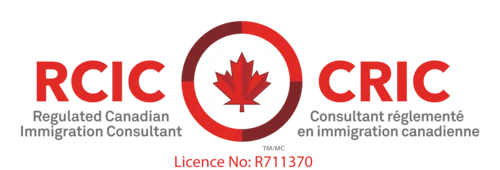France student visa
France has been a popular destination for immigrants due to its world-class education, rich culture, and high quality of life. This country spends a lot of money to improve in its field of science and research, and as a result, it has been able to rank sixth in the world in this subject. correspondingly, France devotes 23% of its national budget to education each year, demonstrating the importance of education and learning, and one of the most significant advantages of studying in this country.
If you wish to immigrate to France, all you need to do is improve your English and French and complete the admissions requirements for top universities in this country.
Senior advisors from Sabouri Immigration Group are with you throughout the duration of this process to ensure its optimal fulfillment.
Types of study visas in France
You can choose from various sorts of study visas in France based on your specific requirements.
Schengen study visa (short stay-Type-C): The short stay or Schengen study visa is meant for a stay of no more than three months, and the applicant must leave France at the conclusion of the three-month period. This visa is free of charge and cannot be extended.
“Student in competition” (étudiant concours) visa: The purpose of this visa is to participate in one or more university entrance exams. After passing the exam, you can extend your residency for an additional year.
The temporary long-stay visa (VLS-T): This visa alone grants you a maximum six-month stay in France.
The long-term visa (VLS-TS): This visa allows you to remain longer than six months in France. This visa is available for three years with a bachelor’s degree, two years with a master’s degree, and four years with a PhD.
School-going minor visa:
In the French education system, preschool is optional and is followed by five years of primary school for ages 6 to 11 and two periods of high school for ages 11 to 15 and 15 to 18 years old.
In France, there are two sorts of schools: private and public, and because the French education system is dynamic and advanced, many people have encouraged their children to study in this country. A tourist visa allows parents to accompany their children in France.
To obtain a School-going minor visa, you must provide a school tuition deposit slip, a school acceptance letter, and proof of financial ability.
French student visa for bachelor’s degree:
There are numerous advantages to pursuing a bachelor’s degree at top French universities. Alongside your studies, you can work 20 hours per week for the duration of this three-to-four-year program.
Validity of your diploma and a score of at least 6 on the IELTS exam are sufficient.
French student visa for master’s degree:
A master’s degree in France requires two to three years to finish. Visa requirements for the master’s program in France include a minimum IELTS score of 6 to 6.5, a valid bachelor’s degree, and an acceptance letter to a master’s degree program at one of Iran’s universities.
The benefits of this degree include learning in a robust educational system and the opportunity to work 20 hours per week as a student. Additionally, it will be possible to secure a visa for the applicant’s companion, but the companion will only be permitted to work provided he or she possesses a French or English language certificate and the approval of the French Immigration Department.
French student visa for Ph.D.:
This scientific-research program takes between three and five years to complete at the PhD level in France.
A master’s degree from a respectable institution and a strong résumé are required to obtain a French study visa at the doctoral level, and a scholarship is typically required for approval.
In addition, the applicant must have a supervisor for his project; after gaining his acceptance and permission, he can apply for the PhD program.
Benefits of a study visa in France:
- To complete your studies in France and enjoy a modern European life style, it is best to first become acquainted with the country’s advantages and amenities.
- The following advantages of studying in France can be noted.
- The cost of studying in this country is significantly lower than that of other European countries, and it is even available to study for free.
- Admission to English-speaking universities is available without the requirement of a French language certificate.
- Providing the applicant with a living and housing allowance
- The freedom to travel to all Schengen member countries
- There are numerous work options available.
- Receive free health insurance
- PhD students are paid while they are studying.
- Permission to work as a student while studying
- The option of extending the stay after the visa’s validity expires.
French study visa without language certificate:
If you are interested in international study migration but have given up because you do not have a language certificate to submit, the good news is that some French universities will allow you to obtain a study visa without a language certificate.
Most universities that do not require a language certificate will invite you to an online interview in English to establish your level of skill in this field, and you will be asked questions about why you want to study in France and your future plans.
Following your success in this stage, you must apply for a French student visa, and if your case officer accepts, you can begin studying in France without any restrictions due to your lack of a language certificate.
The following French universities accept applicants without a language certificate:
- Paris Business School
- Neoma business schools
- ISC Paris
- SKEMA business schools
- Toulouse Business School
- EBS Paris
- EPITA Graduate School of Computer Science
- ESAIP Faculty of Engineering
Conditions for acquiring a student visa in France:
If you are not a citizen of the European Union and wish to study in one of France’s colleges or educational institutions, you must first obtain a study visa from this country.
When you travel to the embassy or agent of this country for an interview to secure a student visa after receiving the acceptance letter from the university, you will be requested to present legal documents as well as paperwork for additional obligations. It is preferable to collect and translate these documents at the appropriate timeframe.
You will be required to submit the following documents:
Completing the visa application form: To acquire a short-stay or long-stay visa, applicants must complete the form for that specific visa. (If you are under the age of 18, you must have your parent or guardian sign the application.)
Providing two photos: the required photo must have been taken within the last six months and have a colored, high-quality background.
Passport presentation: Passport must be valid for at least 3 months after the end of your stay and must have been issued within the last 10 years. It should be mentioned that having two blank pages in your passport is mandatory.
Copies of previous visas: If you have received a visa from another country, you must submit a copy of it to France together with other documentation.
Criminal record certificate: This certificate must be approved by the relevant Iranian authorities.
Providing payment documents for executive services
Submitting a letter of acceptance from the university: the name and logo of the destination university must be on the letterhead, as well as your full name, educational institution data, and the start and end dates of your studies.
Providing financial proof: You must convince the French government that you can afford to pay for your study and living expenses by providing a bank statement, student loan, or scholarship certificate.
Commitment to leave France after studies are completed
Providing health insurance
Providing the documentation required to determine residency status
Providing the documentation for An English language proficiency (or French if you intend to study in a French language course)
(To acquire a French language certificate, you must complete one of the accepted examinations, such as DELF/DALF or TCF, and obtain a passing score. To earn a degree in English, you must pass one of the recognized examinations (IELTS, TOEFL, PTE Academic, or C1 Advanced) and submit a passing result.)
French study visa fees:
Numerous expenses, including the cost of living and the cost of education, are incurred when studying in France and many other countries.
Type of payment | Amount of payment |
Studying in French public schools | 1500 to 2000 euros per year |
Studying in international schools | 20 to 45 thousand euros per year |
Bachelor’s degree | 2770 euros per year |
Master’s degree | 3770 euros per year |
PhD degree | Through scholarship or fund and monthly allowance |
The general cost of doctoral-level education | 300 euros per year |
The cost of studying in private universities | 8 to 30 thousand euros per year |
Annual student insurance | 200 euros per year |
Average annual living expenses per person | 800 to 1100 euros per month |
French study visa | 50 euros |
French study visa with scholarship:
Receiving a scholarship can tremendously assist a candidate in continuing his studies overseas. France is no exception to this rule and has made it possible for international students to receive a scholarship by setting beneficial conditions.
Obtaining a scholarship in France necessitates a solid research résumé as well as the ability to obtain an IELTS language certificate with a minimum score of 7.
This strategy is not entirely free, but it can cover a significant portion of the created expenditures. It should be noted that the scholarship application deadline is always between February 1 and May 1.
The following are the most prominent scholarships in France:
- Eiffel scholarship
- Erasmus scholarship
- Excellent scholarship
- The Émile Boutmy Scholarship
- Saklay scholarship
- Grenoble Foundation scholarship
- HEC Paris scholarship
- IESEG’s scholarship
The steps to apply for a French study visa are:
To obtain a study visa for France and start the educational process at the international level, it is necessary to complete each of the following steps completely and carefully.
- Receive acceptance letter
- Visit the embassy to obtain a visa.
- submission of documents
- issuance of study visa
What is the process to get a French study visa?
- Receive acceptance letter
Choose the selected course of study and apply for admission to the desired educational institution in order to obtain a French student visa. After analyzing the application and taking into account your basic qualifications, the selected university will accept or reject it.
Some of the major universities in France are:
Paris Polytechnic Institute
KEDGE BUSINESS SCHOOL
Emilion Business School
HEC Paris
- Visit the embassy to obtain a visa
The next step is to register in the CampusFrance portal and schedule an interview with the French Embassy in person.
- submission of documents
After completing the required documents and scheduling the interview, you should be prepared to present the documentation to the consular officer at the embassy.
- issuance of study visa
If you successfully complete the interview and all of your documents are accepted and authorized by the French Embassy, your study visa will be given.
The reasons for the rejection of the study visa application:
In some instances, the French embassy may reject your visa application for numerous reasons, such as insufficient evidence of presented documents or invalid reference letters. In such instances, you may file an appeal or resubmit the visa application.
Rejection of an application is a terrible experience for the applicant, who in many cases loses hope, but you can call Sabouri Immigration Group consultants to resolve this and any other potential issues. Our specialists are prepared to respond to any inquiries you may have.





